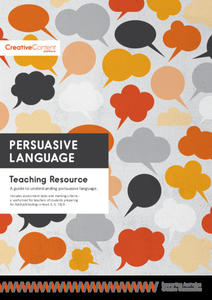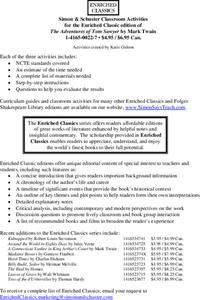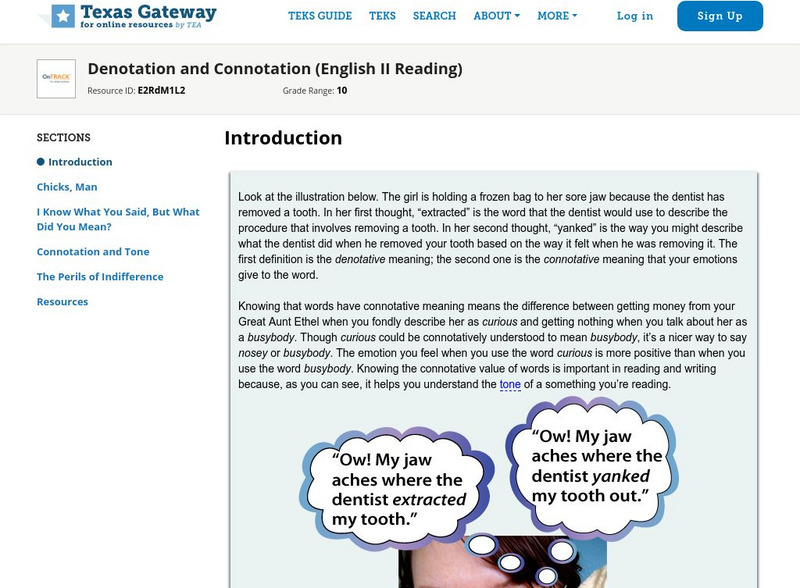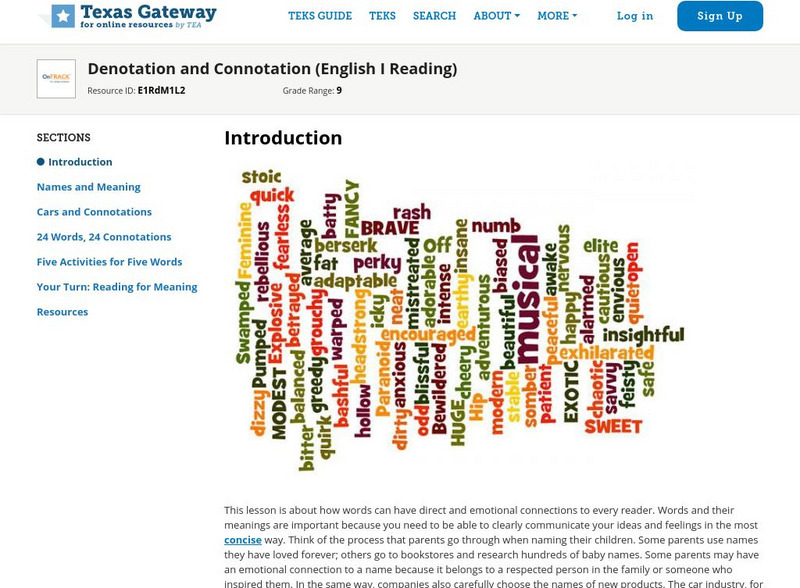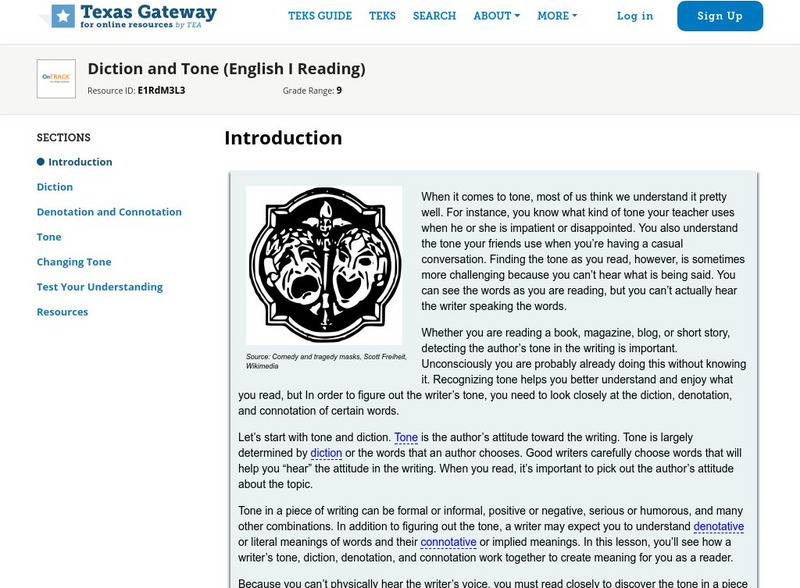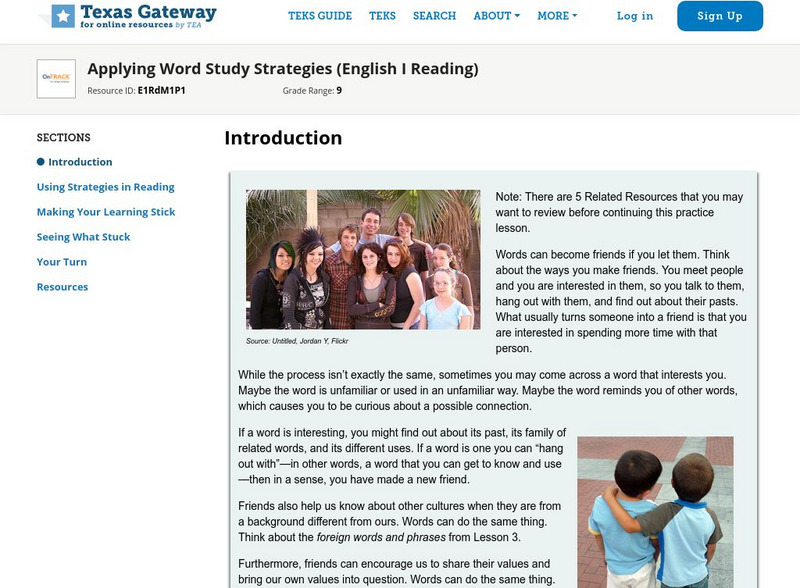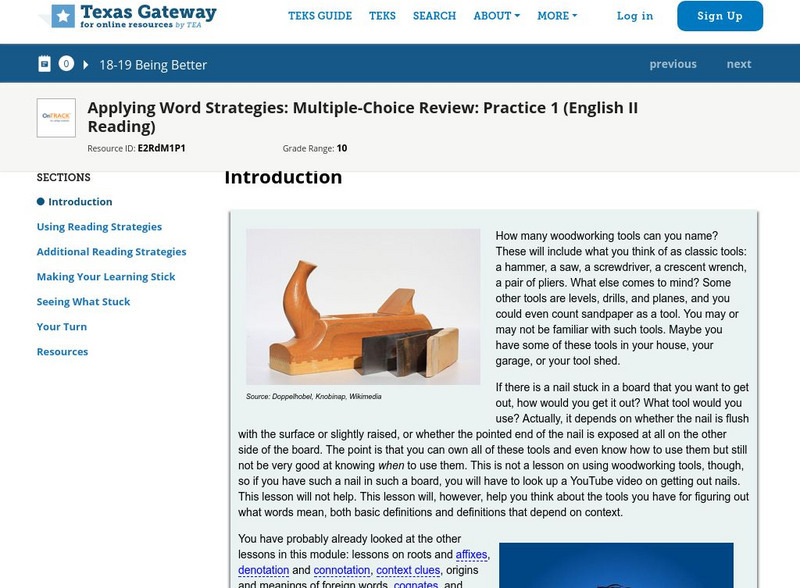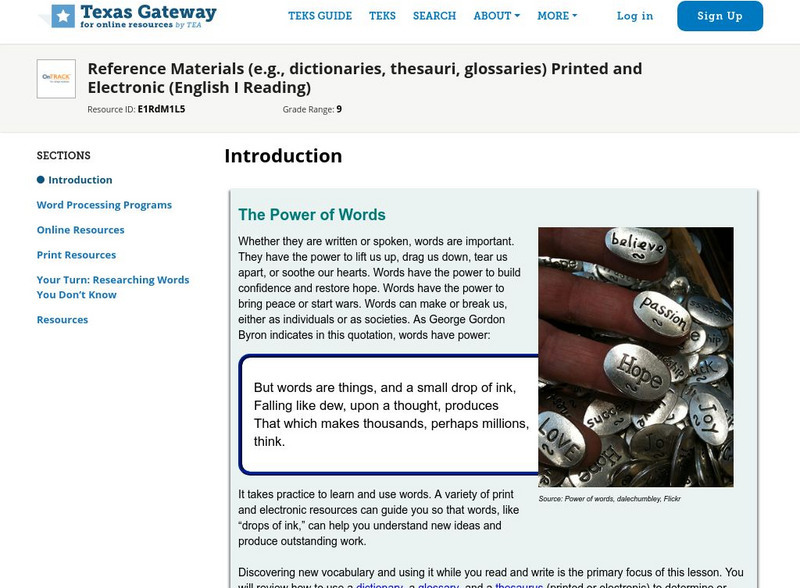Creative Content Australia
Persuasive Language
Language has power. Use the materials in a language arts teaching guide to equip learners with the knowledge of the persuasive techniques, both verbal and visual, that can be used to influence thinking.
Santa Ana Unified School District
Early American Poets
The poems of Walt Whitman and Emily Dickinson are the focus of a unit that asks readers to consider how an artist's life and changes in society influences his or her work. After careful study of Whitman's and Dickinson's perspectives on...
Portland Public Schools
Teaching Tone to Teenagers
Tone is a tough topic to teach to teenagers. But never, fear, help is here in the form of a unit plan that takes advantage of their interest in music to set the stage for a series of activities that lead them to understand how setting,...
Simon & Schuster
Classroom Activities for The Call of the Wild by Jack London
Three activities are designed for readers of Jack London's The Call of the Wild. First, class members research and create posters that reflect the setting of the novel. Next, groups create posters with images that represent each chapter...
Simon & Schuster
Classroom Activities for The Adventures of Tom Sawyer by Mark Twain
A 16-page packet includes three activities for a unit study of Mark Twain's The Adventures of Tom Sawyer. Before beginning the novel, class members identify the factors in their lives that helped create their frame of reference,...
Mr. Ambrose
The Great Gatsby, F. Scott Fitzgerald
Good discussion questions, quizzes, and tests teach as well as assess. Readers of The Great Gatsby will learn much from the materials in a 36-page packet designed to help students prepare for the AP Literature exam. Included in the...
Texas Education Agency
Texas Gateway: Denotation and Connotation (English I Reading)
This lesson focuses on denotation and connotation including the abilty to distinguish words according to their emotional or cultural meaning. Your ability to do so can help you understand the author's purpose or more about a character in...
Texas Education Agency
Texas Gateway: Denotation and Connotation (English Ii Reading)
This lesson is about how words can have emotional connections for readers. Connotation and denotation are a part of language, and knowing about them can help you understand not only the author's purpose, but also the author's attitude...
Texas Education Agency
Texas Gateway: Denotation and Connotation (English I Reading)
Distinguish between the denotative (dictionary) meaning of a word and its connotative (emotions or associations that are implied rather than literal) meaning. L.9-10.5b nuances
Texas Education Agency
Texas Gateway: Denotation and Connotation (English Ii Reading)
You will be able to distinguish between the denotative (dictionary) meaning of a word and its connotative (emotions or associations that are implied rather than literal) meaning. L.9-10.5b nuances
TES Global
Blendspace: Connotation/denotation
Work through links to activities, assessments, websites, and videos to learn about connotation and denotation.
Texas Education Agency
Texas Gateway: Literary Text: Diction and Tone
This lesson deals primarily with diction and tone and how to recognize them in your reading. Tone is largely determined by diction or the word choices a writer makes. The process of choosing the right word involves denotation and...
Other
Bedford/st. Martin's: Connotation and Denotation
A brief explanation distinguishes connotation from denotation. At the bottom, click on practice exercises. L.11-12.5b Nuance
Texas Education Agency
Texas Gateway: Diction and Tone (English I Reading)
In this lesson, you'll see how a writer's tone, diction, denotation, and connotation work together to create meaning for you as a reader.
Georgia Department of Education
Ga Virtual Learning:20th Century and Modern Poetry:postcolonialism:george Orwell
This lesson from 20th Century and Modern Poetry focuses on George Orwell and his autobiographical account of "Shooting an Elephant." It features links to the text of "Shooting an Elephant," a study guide/lesson plan, questions concerning...
Texas Education Agency
Texas Gateway: Diction and Tone (English Ii Reading)
This lesson will help students identify diction and tone in their reading and will help them answer these questions: What does the author mean? What is the author's attitude about what he or she is writing? How will my understanding of a...
Texas Education Agency
Texas Gateway: Diction and Tone (English Iii Reading)
[Accessible by TX Educators. Free Registration/Login Required] In this lesson, students will learn how to find the tone in a passage using a close reading strategy. They will also look at diction and discover that examining a writer's...
Texas Education Agency
Texas Gateway: Applying Word Study Strategies (English I Reading)
In this lesson, students will practice applying word study strategies to improve your reading fluency and comprehension. L.9-10.5b nuances
Texas Education Agency
Texas Gateway: Applying Word Study Strategies (English I Reading)
Apply previous lessons, (1) Linguistic Roots and Affixes, (2) Denotation and Connotation, (3) Origins and Meanings of Foreign Words, (4) Cognates, and (5) Reference Materials, to improve fluency and comprehension.
Texas Education Agency
Texas Gateway: Applying Word Strategies: Multiple Choice Review: Practice 1
Lessons on roots and affixes, denotation and connotation, context clues, origins and meanings of foreign words, cognates, and reference materials help determine word meanings. These lessons told you HOW to use these word discovery tools....
Texas Education Agency
Texas Gateway: Reference Materials Printed and Electronic
Learn how to use dictionaries, glossaries, and thesauri in order to determine meanings of words and phrases, including their denotations, connotations, and etymologies.
Texas Education Agency
Texas Gateway: Reference Materials: Printed and Electronic
You will learn how to use dictionaries, glossaries, and thesauri in order to determine meanings of words and phrases, including their denotations, connotations, and etymologies.
TED Talks
Ted: Ted Ed: How Did English Evolve?
This lesson focuses on the evolution of the English language. What is the difference between "a hearty welcome" and "a cordial reception"? In a brief, action-packed history of the English language video, Kate Gardoqui explains why these...
Texas Education Agency
Texas Gateway: Reference Materials Printed and Electronic
Find out how to use dictionaries, glossaries, and thesauri in order to determine meanings of words and phrases, including their denotations, connotations, and etymologies.
Other popular searches
- Connotation and Denotation
- Connotation Denotation
- Connotation vs. Denotation
- Connotation vs Denotation
- Connotation, Denotation
- Connotation Denotation Ppt
- 113 Connotation Denotation
- Connotation Denotation Pot
- Connotation/denotation
